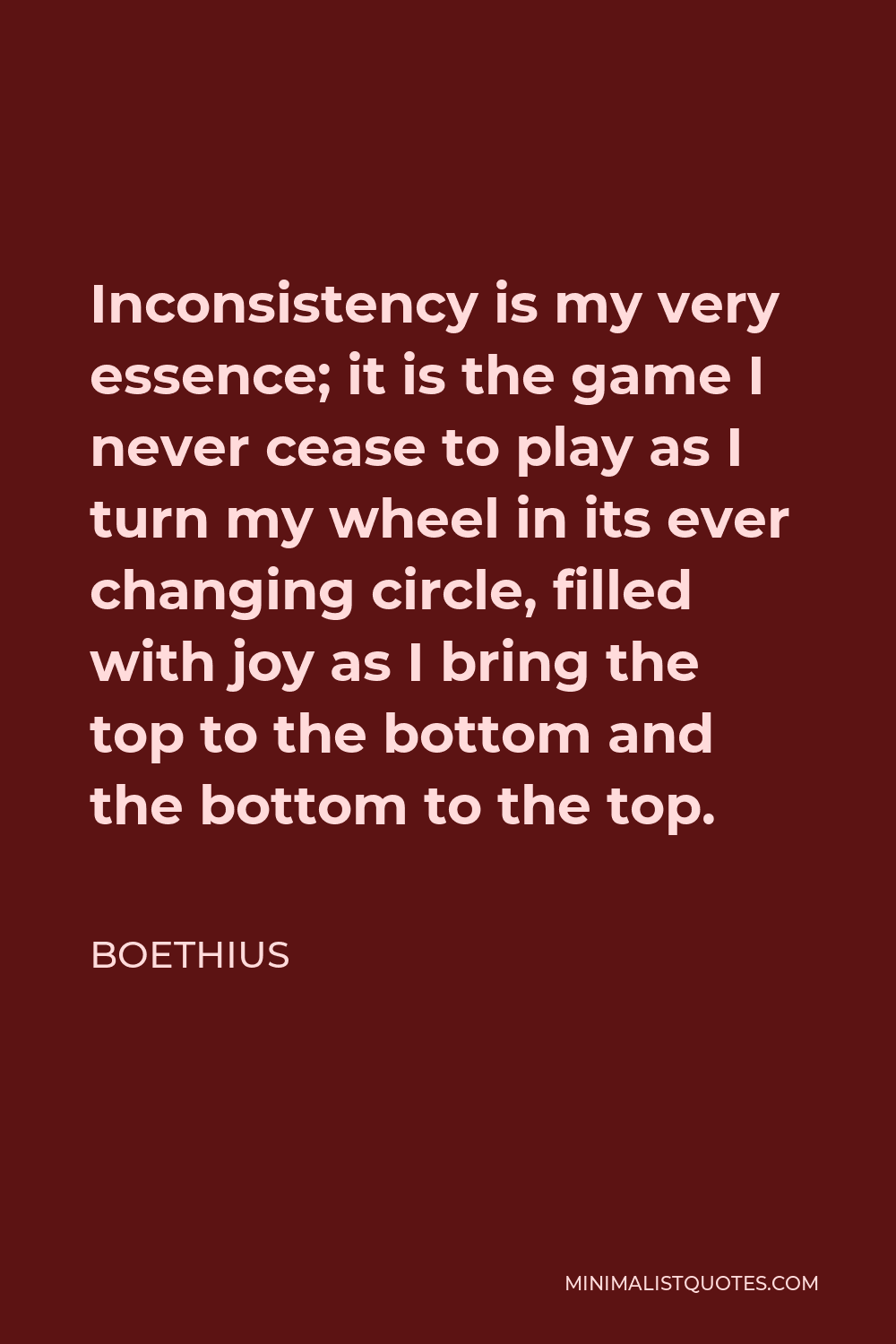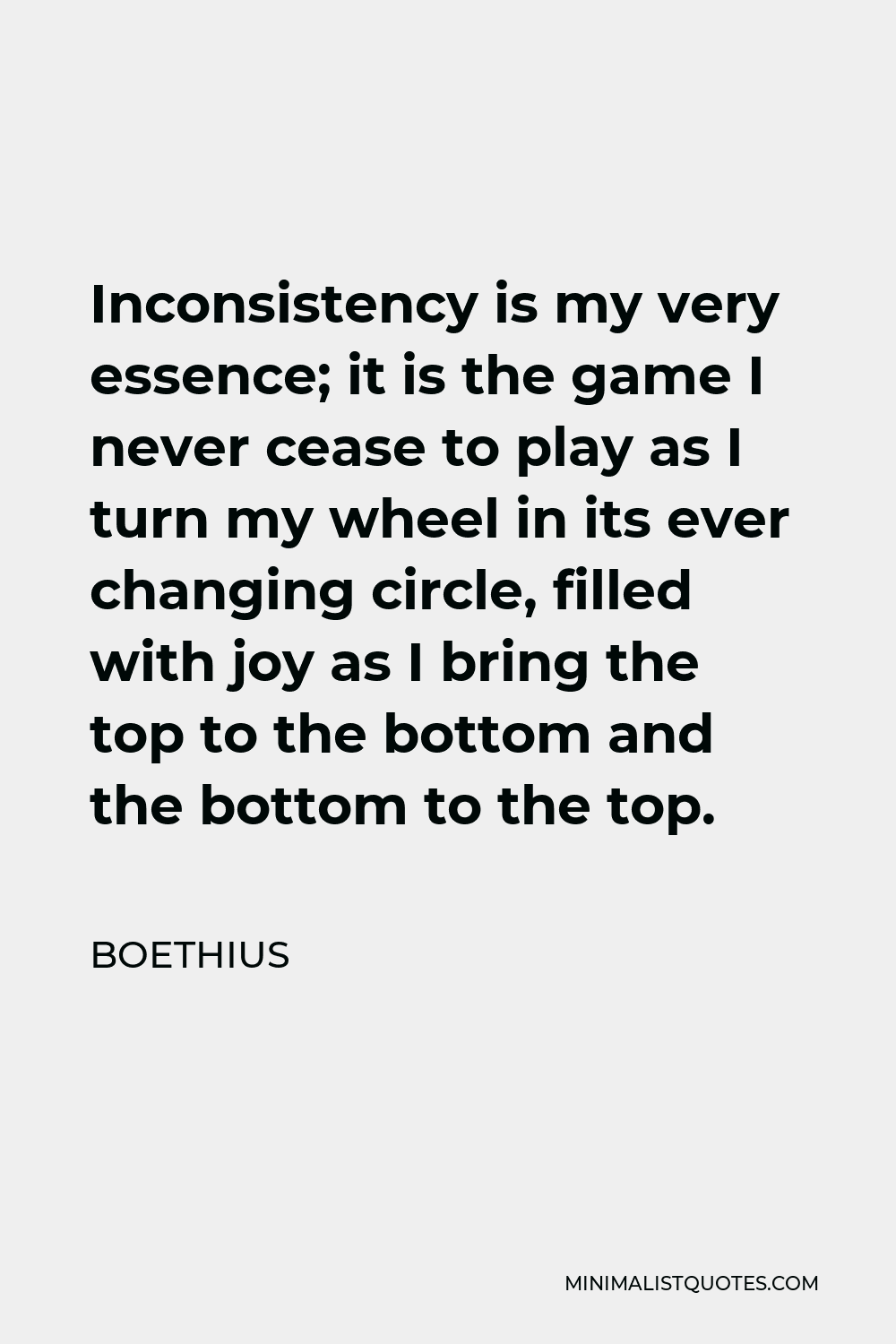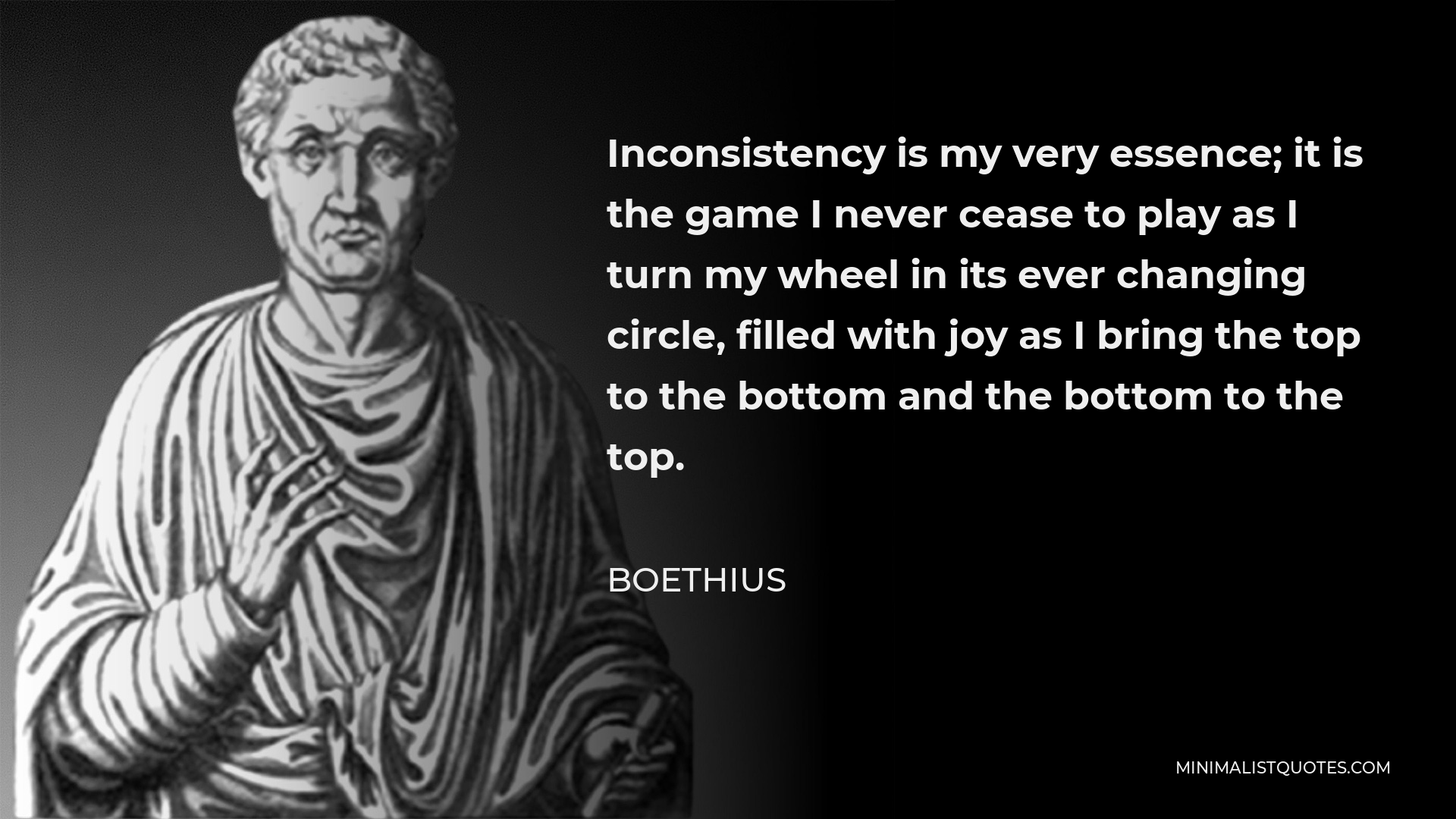A man content to go to heaven alone will never go to heaven.
BOETHIUSInconsistency is my very essence; it is the game I never cease to play as I turn my wheel in its ever changing circle, filled with joy as I bring the top to the bottom and the bottom to the top.
More Boethius Quotes
-





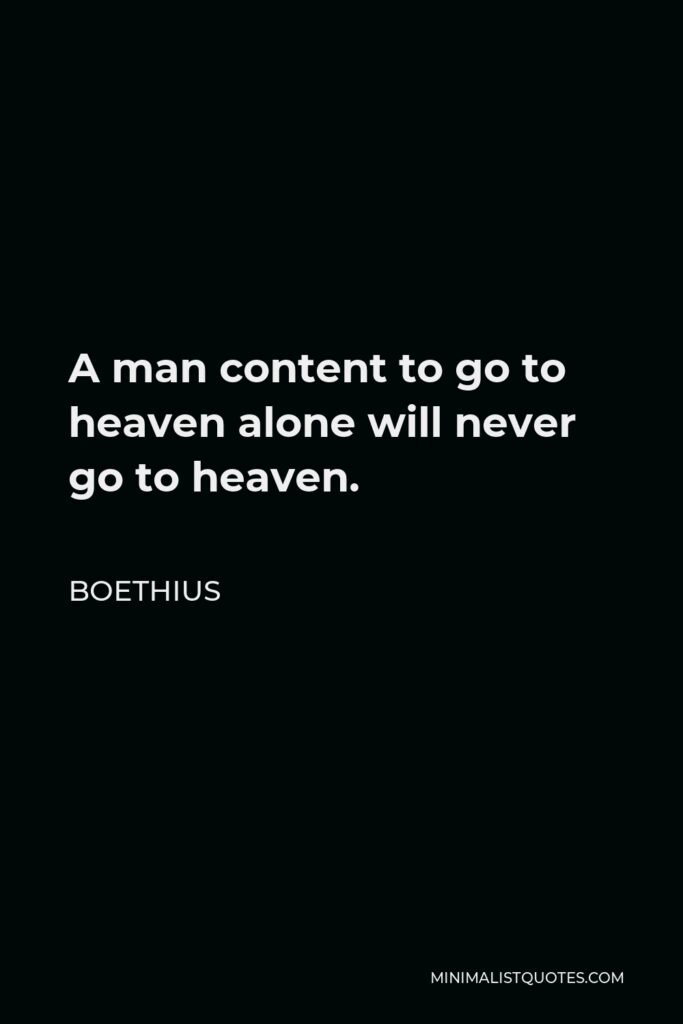

-





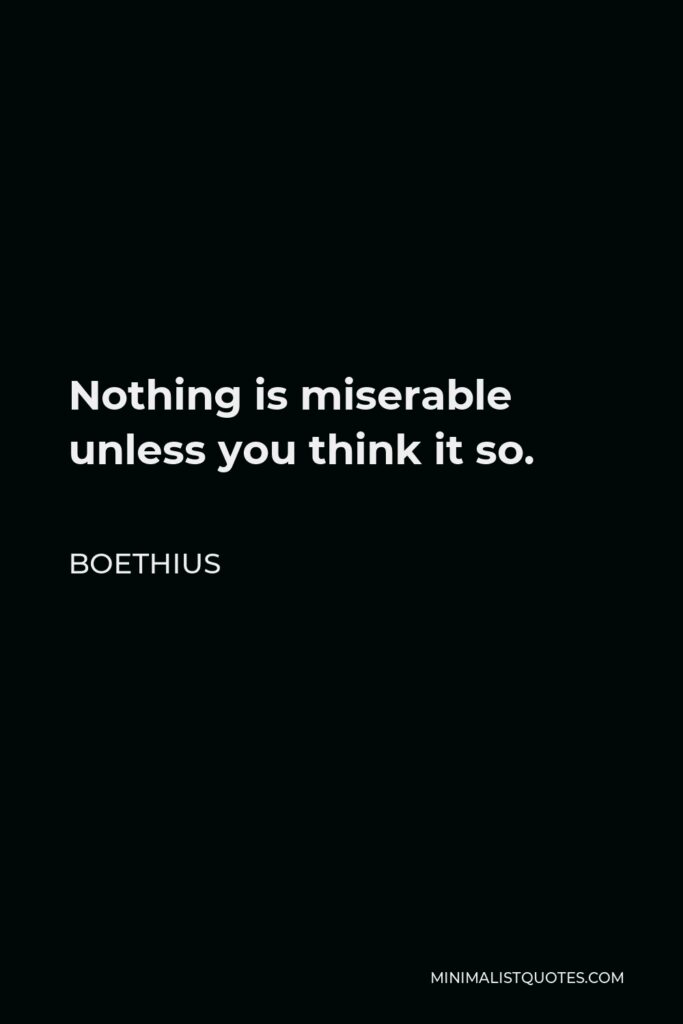

Nothing is miserable unless you think it so.
BOETHIUS -





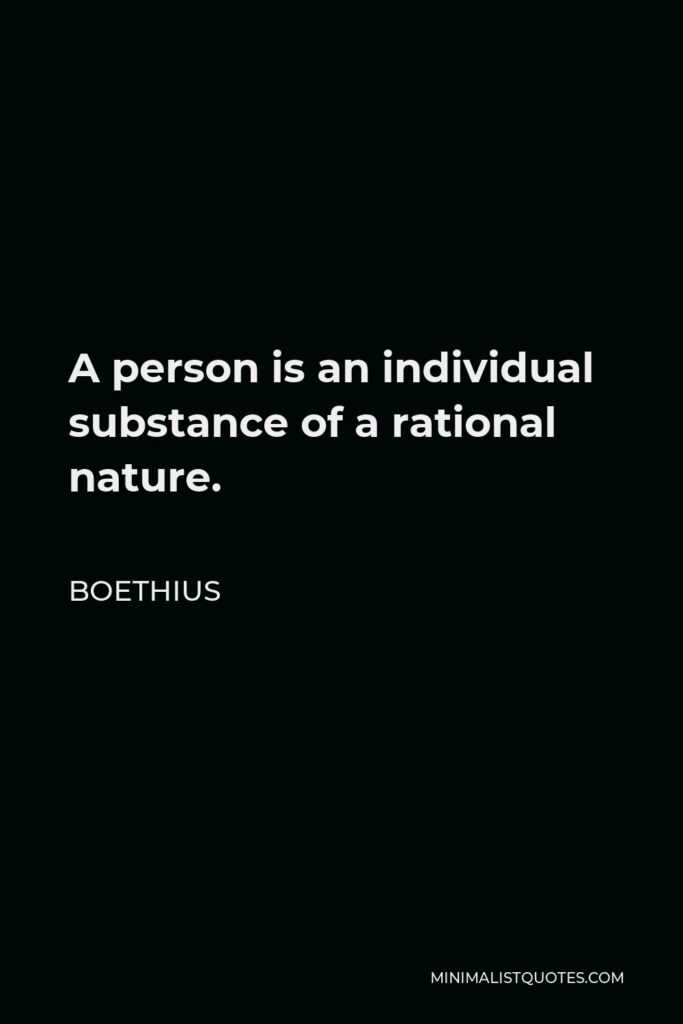

A person is an individual substance of a rational nature.
BOETHIUS -





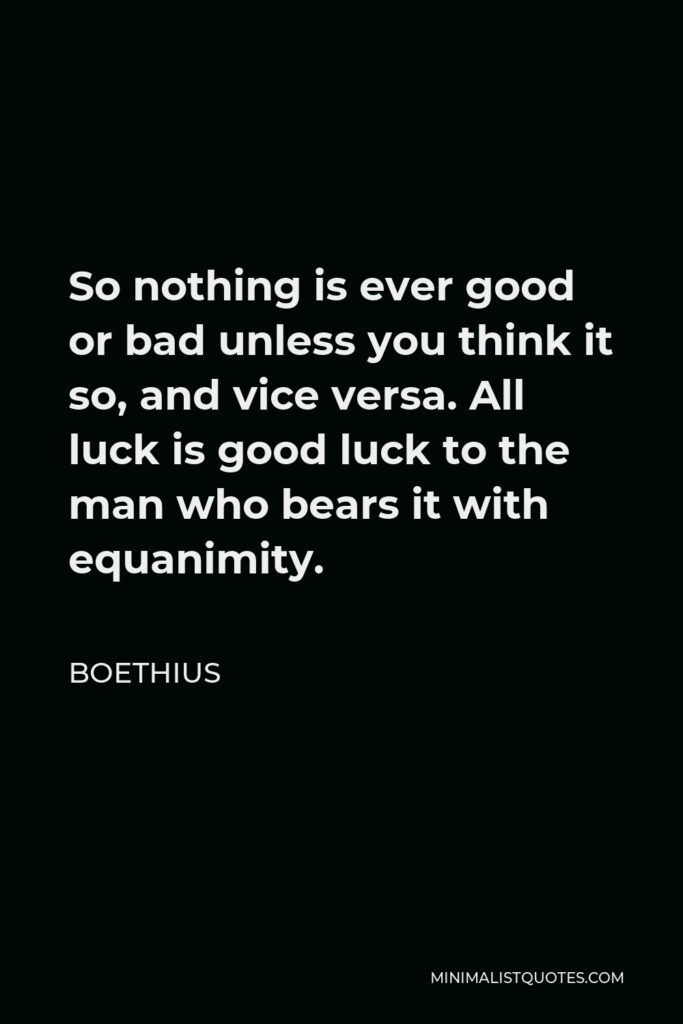

So nothing is ever good or bad unless you think it so, and vice versa. All luck is good luck to the man who bears it with equanimity.
BOETHIUS -





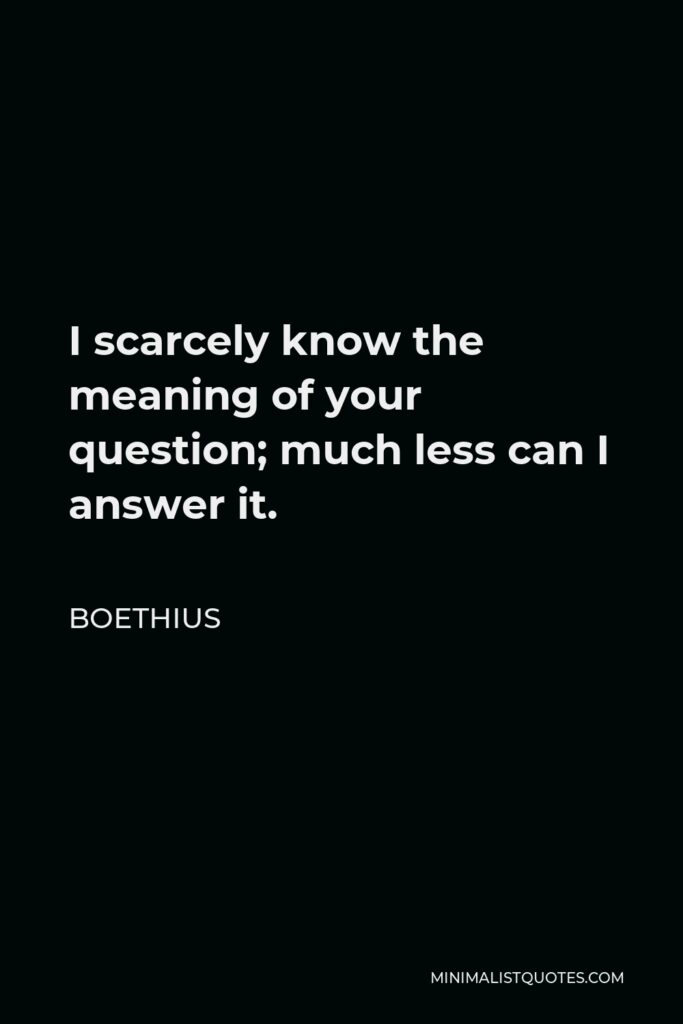

I scarcely know the meaning of your question; much less can I answer it.
BOETHIUS -





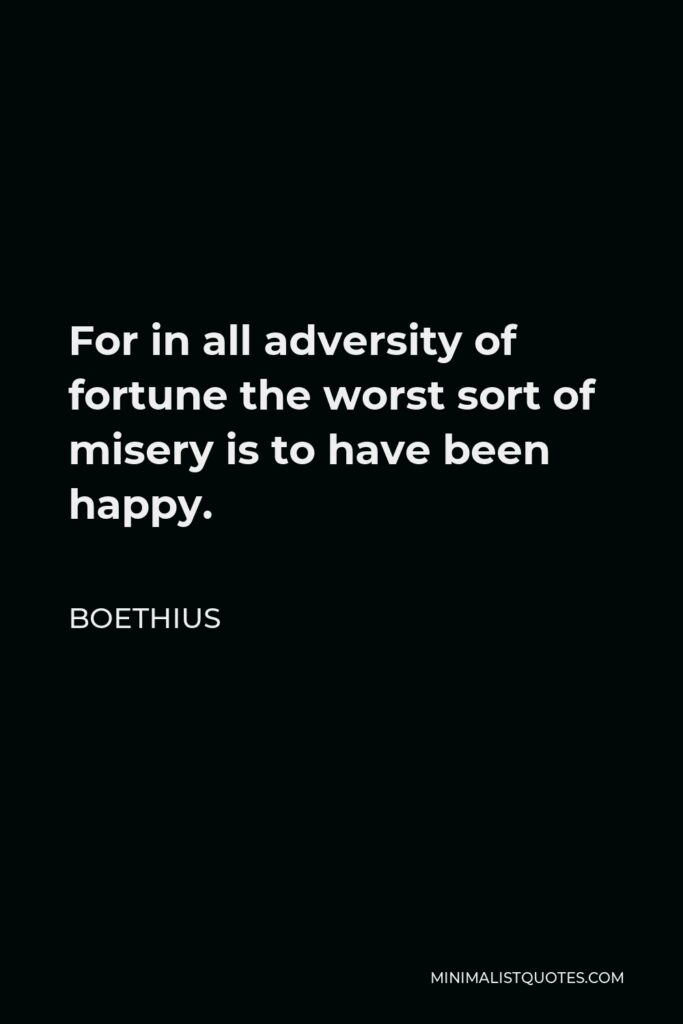

For in all adversity of fortune the worst sort of misery is to have been happy.
BOETHIUS -





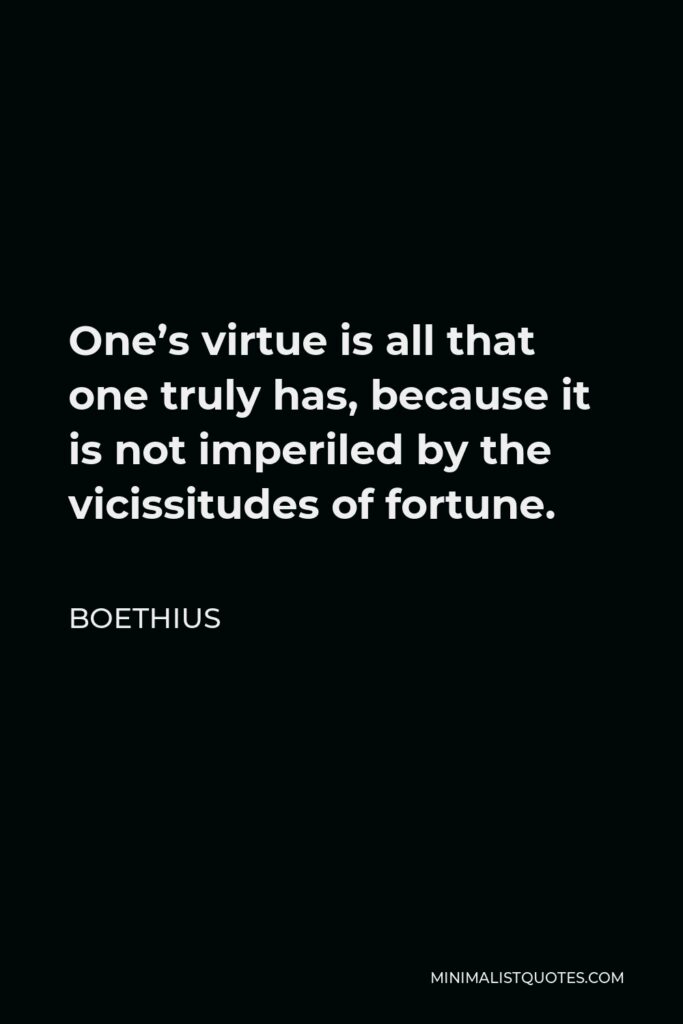

One’s virtue is all that one truly has, because it is not imperiled by the vicissitudes of fortune.
BOETHIUS -





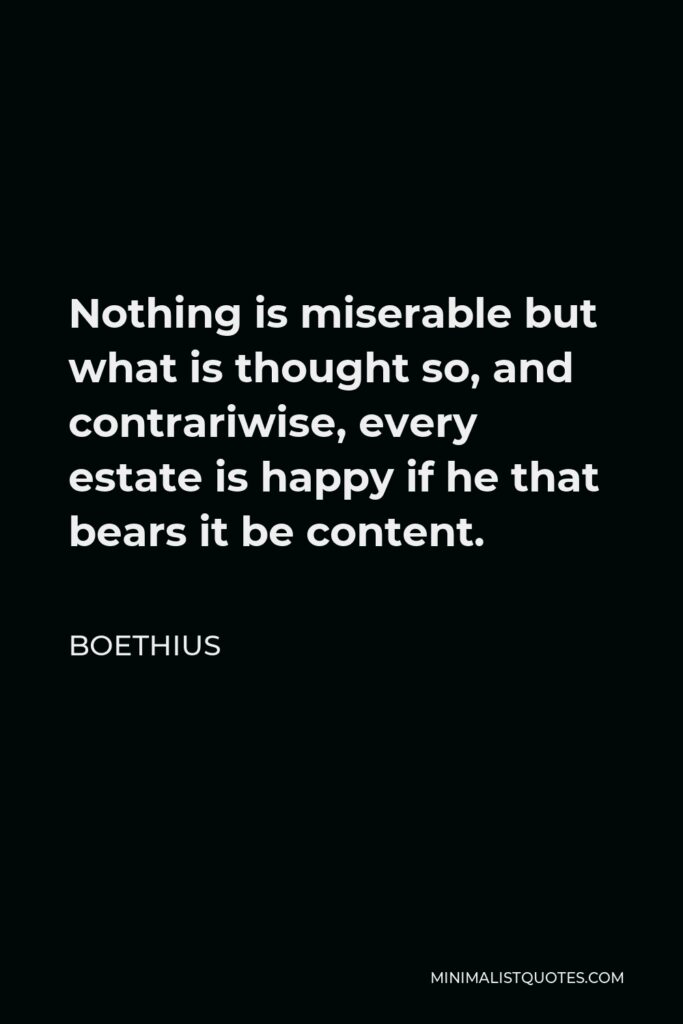

Nothing is miserable but what is thought so, and contrariwise, every estate is happy if he that bears it be content.
BOETHIUS -





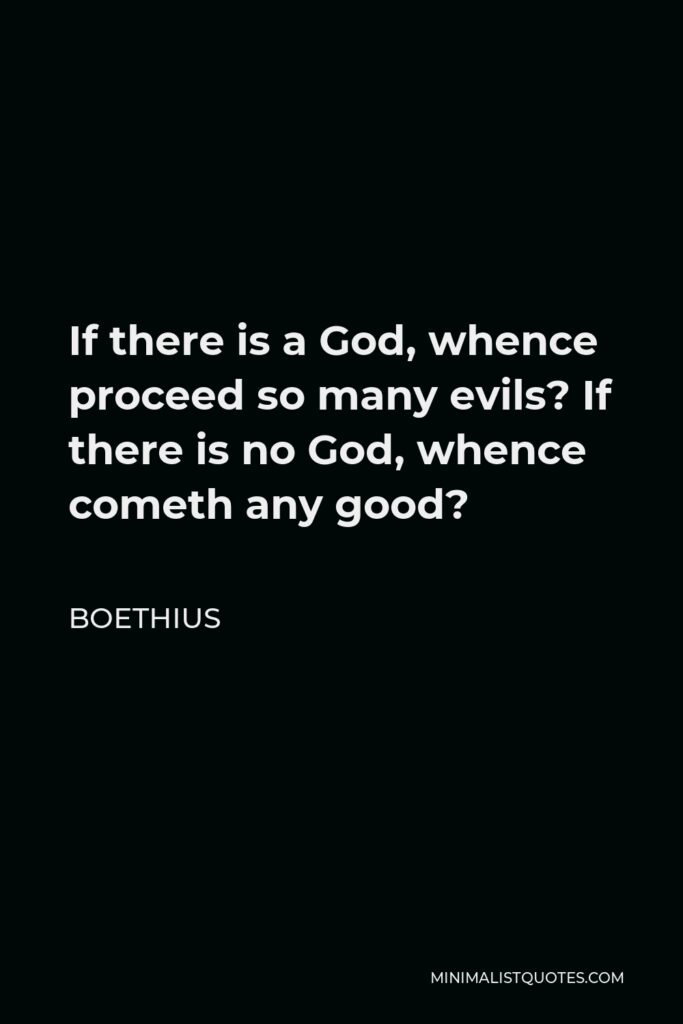

If there is a God, whence proceed so many evils? If there is no God, whence cometh any good?
BOETHIUS -





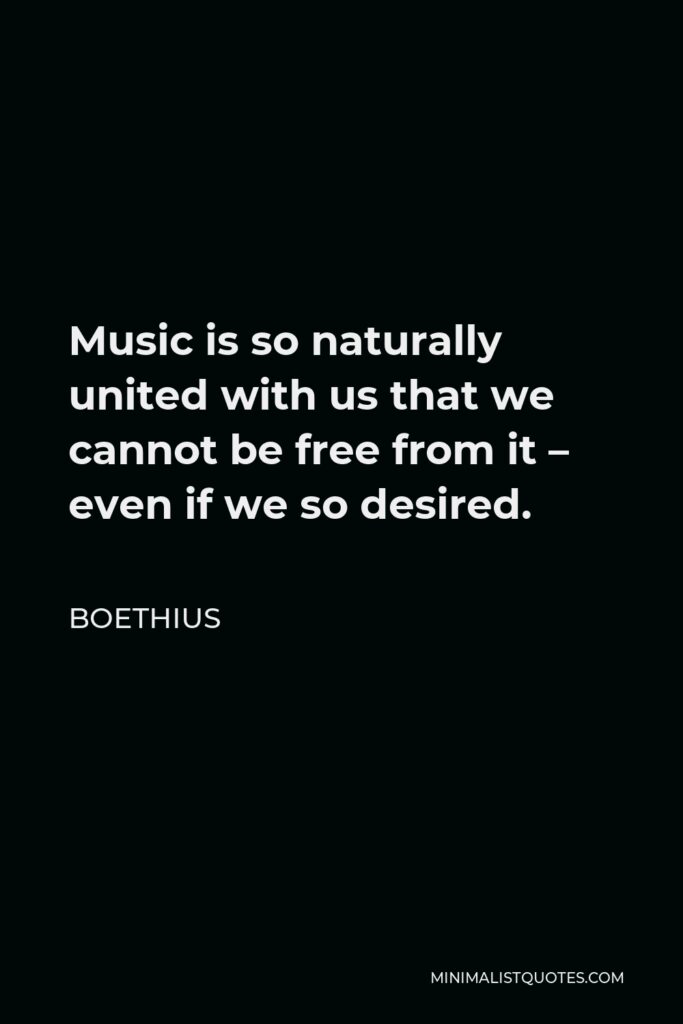

Music is so naturally united with us that we cannot be free from it – even if we so desired.
BOETHIUS -





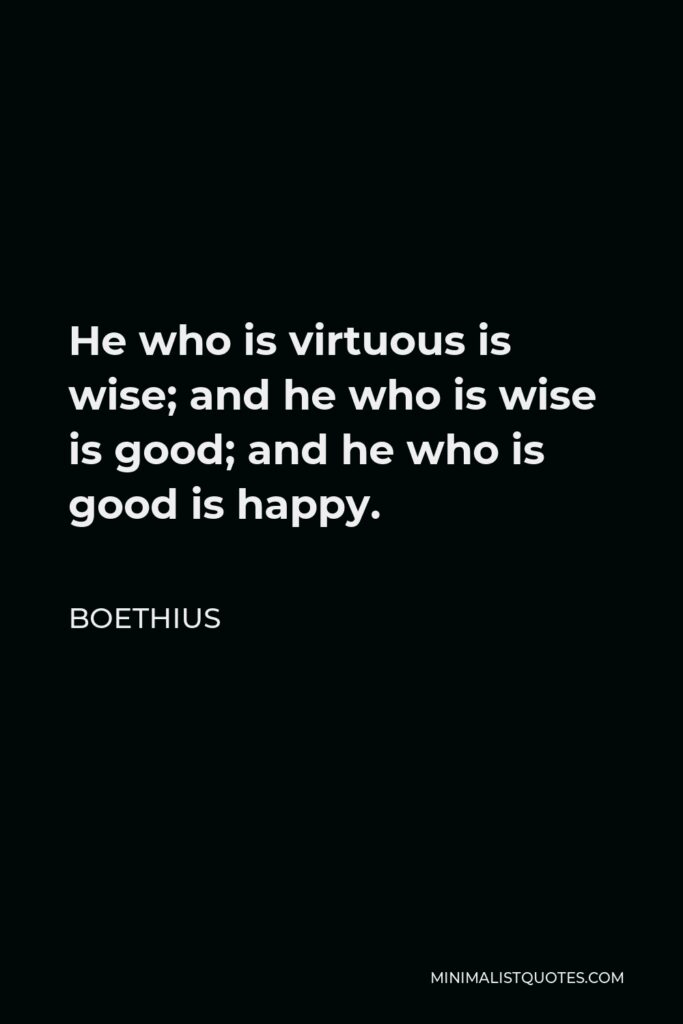

He who is virtuous is wise; and he who is wise is good; and he who is good is happy.
BOETHIUS -





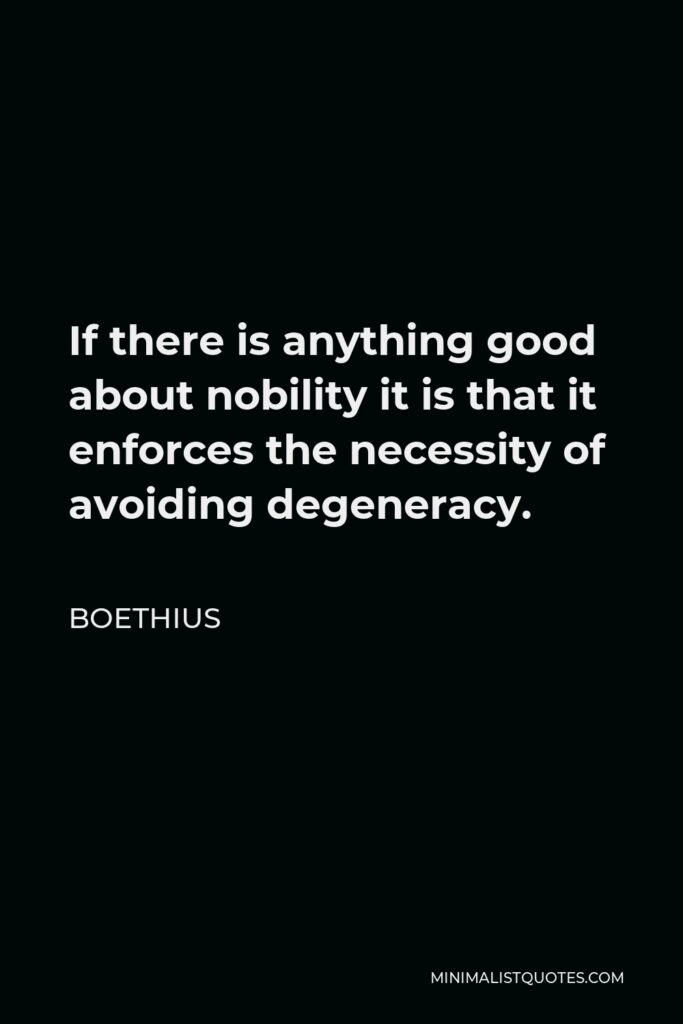

If there is anything good about nobility it is that it enforces the necessity of avoiding degeneracy.
BOETHIUS -





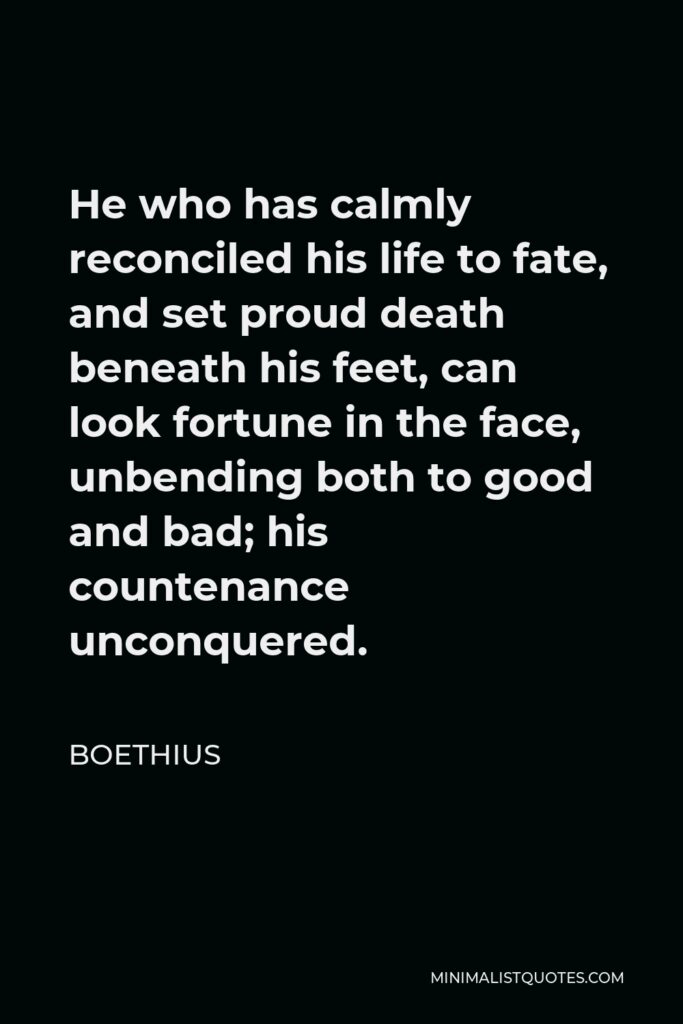

He who has calmly reconciled his life to fate, and set proud death beneath his feet, can look fortune in the face, unbending both to good and bad; his countenance unconquered.
BOETHIUS -





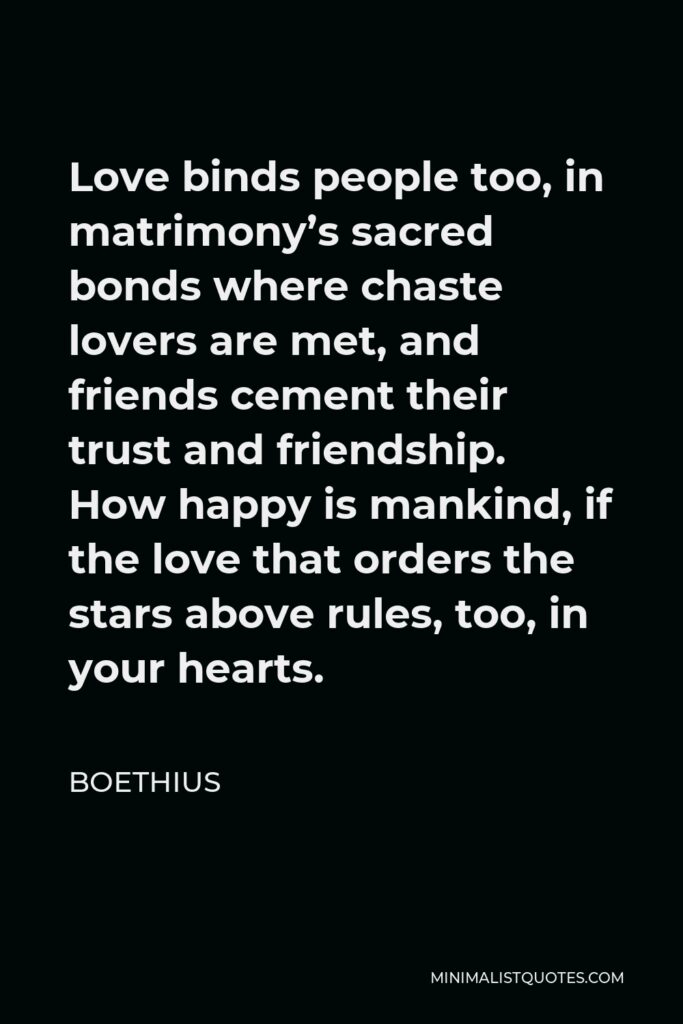

Love binds people too, in matrimony’s sacred bonds where chaste lovers are met, and friends cement their trust and friendship. How happy is mankind, if the love that orders the stars above rules, too, in your hearts.
BOETHIUS -





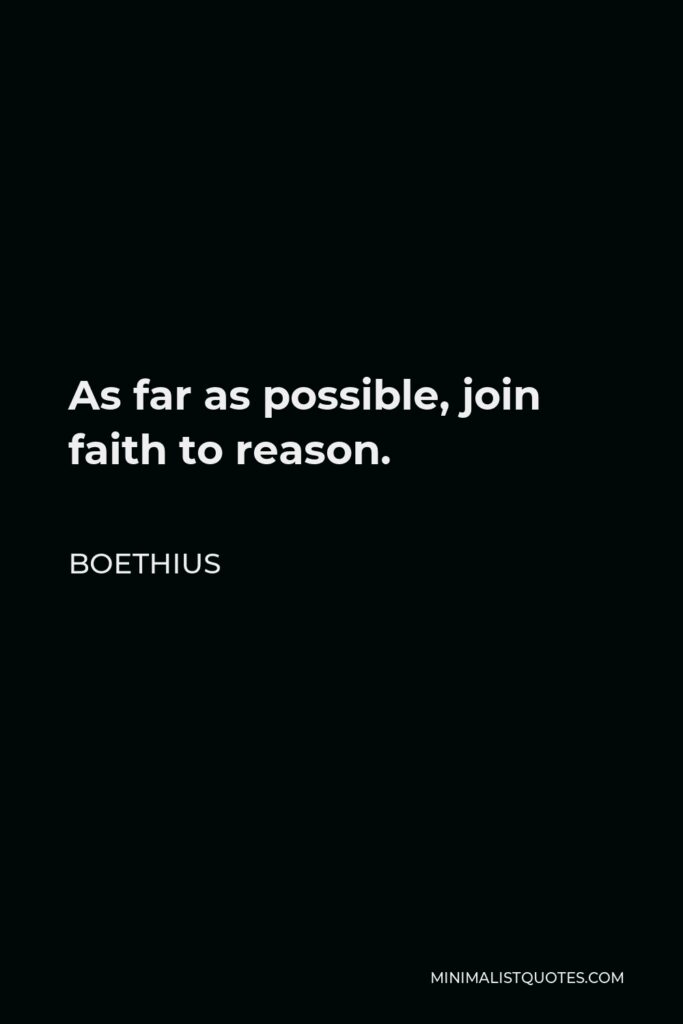

As far as possible, join faith to reason.
BOETHIUS -







Give me Thy light, and fix my eyes on Thee!
BOETHIUS



